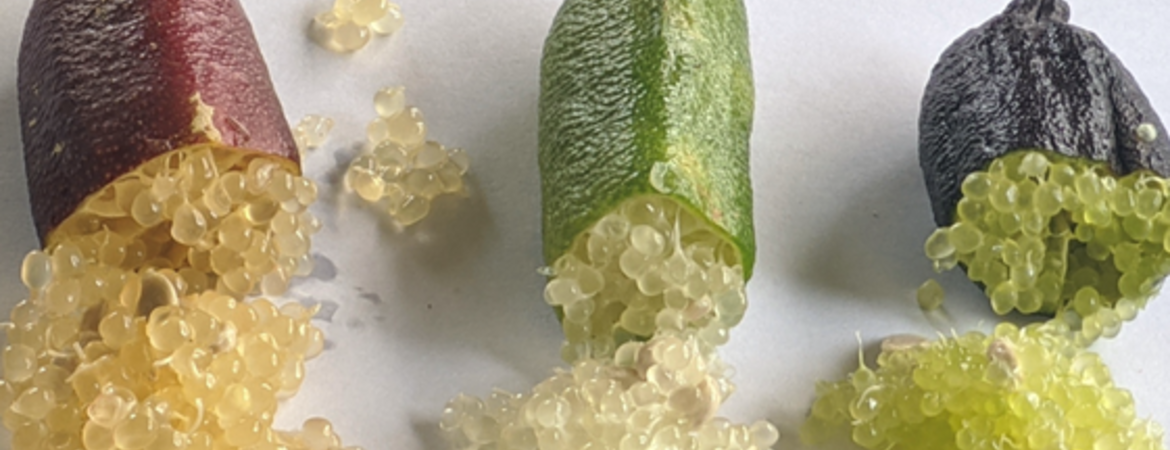
There’s some good news in the long-running battle against a disease that’s devastated Florida’s signature crop, oranges. Researchers are developing tools to help control citrus greening, a disease that has killed thousands of acres of orange and grapefruit trees.
One of the most promising treatments was recently developed in a fruit most people have never heard of, the Australian finger lime. The finger lime, native to rainforests in Australia, looks a little like a pickle. It’s just a couple inches long, grows on small trees and is gaining popularity as an exotic fruit.
Researcher Hailing Jin became interested in the fruit because it is related to oranges, but it isn’t affected by citrus greening. Jin, a molecular geneticist at the University of California Riverside says, “When I heard that there are some wild citrus close relatives that show tolerance or partial resistance, then I (felt) like there must be some genes responsible for it.”
In the 15 years since citrus greening first appeared in Florida, growers and researchers have scrambled for solutions. During that time, the disease has upended the industry. Orange production has plummeted, from nearly 300 million boxes in 2000 down to about 70 million boxes last year. The decline has cost jobs and forced the closure of packing houses and juice processing plants. The disease has now been found in commercial groves in Texas and in trees in residential areas in California.
The rest of this article by Greg Allen can be read in full at NPR.
